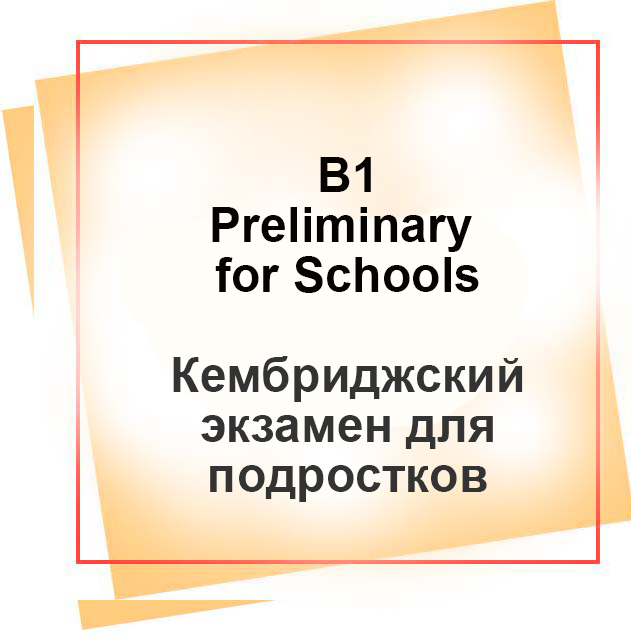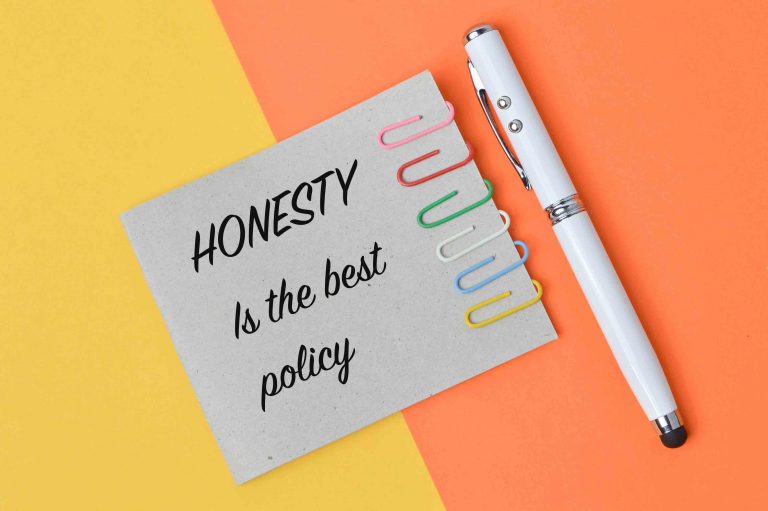Tемы и вопросы для IELTS Speaking Part 3
Список тем и вопросов для IELTS SPEAKING PART 3
1. Eating habits
2. Education
3. Universities
4. Environment
5. Influence of television
6. Influences on the young
7. Leisure activities
8. Shopping
9. Sports
10. Transport
11. Travel
12. Role models
13. Leadership and politics
14. Life experience
15. Retirement and old age
16. Photography and the image
17. Inventions and copyright
18. The Internet and social media
19. Clothes in general
20. Shopping for clothes
21. Wearing Clothes
22. Fashion
23. Family
24. Health
25. Gift
26. Art
27. Work
28. Holiday
29. Technology
30. Decision Making
31. Historic Place
32. Films/ Cinema
33. Reading Books
34. Media & News
35. Humor
36. Advertising
37. Childhood Memory
38. Ceremony
39. History
40. Plants
41. Music
42. Friends
1. Eating habits
Tell me about the types of food that people eat in your country.
How healthy is your country’s food?
How are the eating habits now in your country different from eating habits in the past?
How may eating habits change in coming decades?
Why do you think different cultures have different table manners?
2. Education
What is your opinion on the way languages are taught in schools?
How are education priorities today different from those in the past?
How can the type of school you go to affect career success?
What changes do you think will happen in the classroom in the near future?
3. Universities
Which is more important, research or teaching?
Is higher education too expensive in your country?
What advantages do universities bring to society?
Should all students pay for their university education?
How should students spend their summer vacations?
4. Environment
What are the main environmental problems in your country?
How can people protect the environment?
Is water pollution a problem in your country?
What are some of the causes of water pollution?
What can individuals do to try and ensure water is kept clean?
Do you think problems with the cleanliness of water will improve in the future?
Why should people be concerned about the environment?
Do you think money should be spent on protecting animals?
Should countries try to solve the climate change problems together or individually? Why?
Do you think more should be done to protect natural beauty spots in your country?
What can a government do to encourage people not to harm the environment?
Tell me, what do you think are the greatest environmental problems facing your country at present?
And what has been done so far to solve these problems?
How successful would you say these measures have been?
Do you think things are likely to get better or worse in the future?
Is what you are going to study likely to be of any use to solve these problems?
5. Influence of television
What effects can watching television have on children?
How popular is watching television in your country?
Tell me about the types of program that are generally on television in your country.
Do you think state or private television is better?
Why do people like watching television?
6. Influences on the young
Why it is important to have role models?
What type of people influence the young in your country?
What do you think young people will be most influenced by it the future?
Do you think the education system in your country influences young people’s behavior?
What type of person (parents, teachers, friends etc) are best to influence young people’s behavior?
7. Leisure activities
Why it is important for people to have time for leisure activities?
What types of leisure activities are popular in your country?
Are the types of leisure activities that are popular today the same as those that were popular when your parents were young?
Why are some activities more popular than others?
What types of leisure activities may become more popular in the future?
8. Shopping
Is shopping a popular activity in your country?
Do you think shopping habits are likely to change in the future?
How have shopping habits changed over recent years?
To what extent do you think advertising affects the way people shop?
9. Sports
What are the benefits of playing a sport?
What benefits do international sporting events bring?
What types of sports are popular in your country?
Do you think the types of sport that are popular will change in the future?
How can sports bring people from different countries closer together?
Why are some sports fans so passionate?
Should athletes be better role models?
Is it important for a country to win lots of medals?
Is there any violence at sporting events in your country?
10. Transport
How do most people travel long distances in your country?
Have the types of transport people use changed much over the last few decades?
Do you think transport is likely to continue to improve in the future?
What kinds of improvement have there been in transport in your country in recent years?
11. Travel
How easy is it to travel around your country?
What are the pros and cons of low-cost air travel?
Which method of travel do you consider safest?
Has travel become safer in recent years?
How do you think people will travel in the future?
12. Role models
Which type of people are respected most in your society?
Do you agree with this situation?
What happens when young people lack good role models?
What standards of behaviour should teachers set?
Do you agree that you should never meet your heroes?
13. Leadership and politics
Do you think people are born to be leaders?
Can leadership skills be taught?
What should a leader do to remain popular?
Why are elected politicians often so unpopular?
Do you think unelected heads of state are a good idea?
14. Life experience
Do you agree that we learn best from our mistakes?
What’s the best way to gain experience in life?
Can we gain life experience from books and movies?
Which is more important, experience or potential?
What experience do you wish you’d gained?
15. Retirement and old age
At what age should people retire from work?
What problems can people face after retirement?
How important are retirees to your country’s economy?
When should you start saving for retirement?
Why do some companies encourage early retirement?
16. Photography and the image
Is it easy to take good photographs?
What are the pros and cons of digital photography?
Should people share their photographs Online?
When can an image be worth a thousand words?
Is a photograph a reliable form of identification?
What are the advantages and disadvantages of taking photographs?
How has modern technology changed the way we take photographs?
How has sharing photographs changed since your grandparents’ time?
How well do photographs capture special moments?
Do you think that people nowadays spend too much time taking photographs?
Why do you think people photograph themselves?
17. Inventions and copyright
Which invention has transformed your country most?
Would you like to be an inventor?
How long should someone be able to profit from an idea?
Do you think intellectual property laws are too strict?
Should all medicines be free to manufacture?
18. The Internet and social media
Which websites are popular among your generation?
Is using the Internet a social or solitary activity?
How has the Internet changed social behaviour?
Should companies check job applicants’ Online profiles?
What will be the next big development Online?
19. Clothes in general
What kinds/styles of clothes do you like to wear? [Why?]
Do your friends have the same tastes in clothes?
Do your friends wear the same kinds of clothes as you?
Do the people around you wear the same kinds of clothes as you?
Do you think you will still be wearing the same kinds of clothes when you are old? (NOTE: Include what you think you will be or won’t be wearing when you are old.)
Is the brand of clothes important to you? [Why?/Why not?]
What clothes materials do you like best? [Why?]
How (much) is traditional culture in your country being affected by foreign clothes styles?
Do you think employees in a company should wear a uniform?
20. Shopping for clothes
Do you like shopping for clothes?
Is shopping for clothes important to you?
Where do you buy your clothes?
Have you ever bought clothes that you (now) don’t like?
Where do you think you can buy the most fashionable clothes?
When was the last time you went shopping for clothes?
Do you think men and women think the same about clothes?
Do you like to try on clothes before you buy them? [Why?/Why not?]
For you, is the colour of the clothes very important when you are shopping for clothes?
21. Wearing Clothes
What kinds of (or, style of) clothes do people in your country like to wear?
What kinds of (or, style of) clothes do you usually buy (or, wear)?
Do you wear the same clothes both at work and after work?
Do you wear the same kinds of clothes in winter and summer?
Do you think you will change the style of clothes you wear in the future?
22. Fashion
Are you very interested in fashion (or, clothes fashions)?
What do you think of (or, about) fashion?
What do you think about fashion nowadays in your country?
Are people’s ideas about fashion (or, ideas about what is ‘fashionable’) today the same as people’s ideas in previous years?
What types of clothes are in fashion now?
Are the clothes that people in your country wear today the same as people’s clothes in previous years? Do many people (in your country) follow fashion?
What are the benefits of following fashion?
Do you think your tastes in fashion will be the same when you are old?
Do you think fashion trends will be the same when you are old(er)?
Are you (would you be) willing to wear a uniform at work?
How do you feel about wearing a uniform? What do you think of modern fashions?
23. Family
What characteristics do elder siblings often have?
Is it better to grow up in a small family or a large extended family?
What role do grandparents play in a family?
Which are more important: family or friends?
What do you think about single parent families?
Should people be more accepting of alternative family types?
24. Health
What are the most popular ways of keeping healthy in your country?
Do you think most people worry more about their health as they get older?
Why do you think some people continue bad habits when they know that they are damaging to their health?
How can children be encouraged to adopt healthy eating habits?
Do you think people have become more health conscious in recent years?
Could governments do more to promote healthier lifestyle options?
25. Gift
What is the purpose of gift giving?
How has gift giving changed since your grandparents’ time?
How important is gift giving in a relationship?
What is more important when it comes to giving a gift, cost or effort?
Do you think that people have become more materialistic when it comes to giving gifts, as compared to your grandparents’ time?
How has modern technology changed the nature of gift giving?
26. Art
Describe the general purpose of art. Why do people enjoy art?
Do you think that art is as important as academic subjects when it comes to educating children?
What are the advantages and disadvantages of art education?
Why do you think some people enjoy looking at paintings and sculptures and others do not?
What are the advantages and disadvantages of being an artist?
Do you think that some people are naturally better artists than others?
27. Work
Do you think job satisfaction is more important than salary when choosing a job?
What skills do you think are needed to get a good job these days?
Do you think women should be able to do all the same jobs that men do?
How has technology changed the way we work?
What is the difference between white collar and blue collar jobs?
What jobs do you think are most valuable to society?
28. Holiday
Why do you think people go on holiday?
How important is it for families to go on holiday together?
Why do some people go on holiday alone?
What kind of holidays will be popular in the future?
Is it better to take a holiday in your own country or in a foreign country? Why?
What problems can people have on holiday in a foreign country?
29. Technology
Describe the advantages and disadvantages of modern technology.
In what ways has technology changed your society?
How has technology changed the way we communicate?
How has technology changed the nature of long-distance relationships?
What are the limitations of technology when it comes to interpersonal relationships?
How could technology be considered a hindrance for us? Can we overcome it?
30. Decision Making
Why do some people find it hard to make decisions?
How important is it to get advice from other people when making decisions?
Why is it sometimes difficult to accept advice?
What are some of the most important decisions young people have to make?
Do you agree that parents should make important decisions for their children?
Is it better to make a decision thinking about what you want or thinking about what other people want?
31. Historic Place
How do people in your country feel about protecting historic buildings?
Do you think an area can benefit from having an interesting historic place locally? In what way?
What do you think will happen to historic places or buildings in the future? Why?
How were you taught history when you were at school?
Are there other ways people can learn about history, apart from at school? How?
Do you think history will still be a school subject in the future? Why?
32. Films/ Cinema
Do you think the cinema has increased or decreased in popularity in recent years?
In your opinion, will this trend continue into the future?
What are the advantages and disadvantages of making films of real-life events?
How important do you think it is for a filmmaker to remain true to the original story?
Should films and television be censored or should we be free to choose what we see?
How do you think censorship laws will change in the next 20 years?
33. Reading Books
Do you generally read a lot of books or do you prefer watching TV? Why?
What kind of books are considered good reads in your opinion?
Do you think that people read nowadays as they did in the past?
Do you regard famous writers as good role models?
If a movie is based on a book, would you prefer to read the book or to watch the film? Why?
How our reading habit changes as we grow up? Why does it happen?
34. Media & News
How do most people get their news in your country?
How do you think people will get their news in the future?
Do you believe everything you read in the newspapers?
How has TV changed people’s life?
What do you think of children watching TV?
How has social media changed the way we get and share the news?
35. Humor
What types of programmes do you find funny on TV?
What types of programmes are most popular in your country? Why do you think this is the case?
What kind of things make you laugh? Why?
Do you like to make people laugh? How?
Do you think it is important to have a sense of humor?
36. Advertising
What makes an advertisement effective?
What is the purpose of advertising?
How have advertisements changed since you were a child?
What are the advantages and disadvantages of advertising?
Do you think that advertisements should be strictly regulated?
How important is it for advertisers to tell the whole truth in advertisements?
37. Childhood Memory
Is it important to have pleasant childhood memories?
Do you think that people are permanently affected by negative childhood memories?
What do you think it means to ‘live in the past’?
Nowadays many parents try to make their children happy by buying them many toys. How do you feel about this?
Is it important for a child to have a lot of toys in order to be happy?
What is more important for a child’s happiness, many toys or many friends?
38. Ceremony
How important are ceremonies in our lives?
Do you see the role of private and public ceremonies changing in the future?
Have attitudes to marriage changed in recent years?
In what ways do men and women feel differently about marriage, in your opinion?
What sort of national events make headlines in your country?
Does the media in your country pay more attention to global or national events?
39. History
Do you like (to learn about) history?
What historical event do you find most interesting?
Do you think history is important?
Do you like to watch programmes on TV about history?
Do you think you can really learn history from films and TV programmes?
Do you think the internet is a good place to learn about history?
Can you name a person from history who you would like to learn more about?
Why would you like to learn more about him/her?
Do schools teach enough history?
How can children learn history outside school?
40. Plants
What plants are important to the economy in your country?
Is it common for people to have gardens where you live?
How can people be encouraged to grow their own food?
If you had a garden, what kind of food would you grow in it?
41. Music
At what age can people go clubbing in your country? (Is that the right age limit?)
Do you think it is possible to judge someone’s personality from their taste in music? (Why/ Why not?)
Do you think it is true that anyone can sing with the right training? (Why?)
Do you think pop stars can be a bad influence on young people? (Can you give some examples?)
Do you think that allowing more buskers in this city is a good idea? (Why/ Why not?)
How could the government help domestic musicians become more popular overseas? (Do you think it is important for the government to do so?)
How does pop music now compare to when you were growing up? (Why do you think that is so?)
How important is it to learn how to play music when you are young? (Why?)
How much does the internet influence how you listen to music? (Do you think it will do so more in the future?)
Is foreign music or music from your country more popular with people your age? (Why do you think that is?)
Is there any future for CDs, do you think? (How long might they still be around?)
Recently many singers and groups have first become famous through television talent shows. What do you think about this?
What do you think about illegal downloading of music? (What should be done about it?)
What would the advantages and disadvantages of being stricter about illegal downloading of music be? (Would it generally be a good thing?)
What do you think about music education in your country? (How could it be improved?)
42. Friends
Generally, are friends or family more important to people your age?
Who do people tend to speak to about their personal problems?
What do you think the most important quality in a friend is?
Do you have any friends now from when you were very young?
Do you think it is possible for men and women to be just good friends?
Do you think it is better to have a few good friends or many different friendships?
For you, what is the difference between a friend and an acquaintance?
Do you think teachers should try to be a friend to their students, or should they keep a distance?
Can you give me some examples of what a friend could do that would make you break off the friendship?
Would you say anyone in your family is also your friend?
Which friends you have now do you think will continue to be your friend when you are much older? (Why do you think so?)
Do you think you will have more friends or less friends as you get older?
Уроки английского языка проводятся преподавателем Анастасией Валяевой. Все учебники, аудио и видео материал предоставляются. Информацию о процессе обучения можно прочитать в ответах на вопросы или связаться с преподавателем Анастасией Валяевой.






